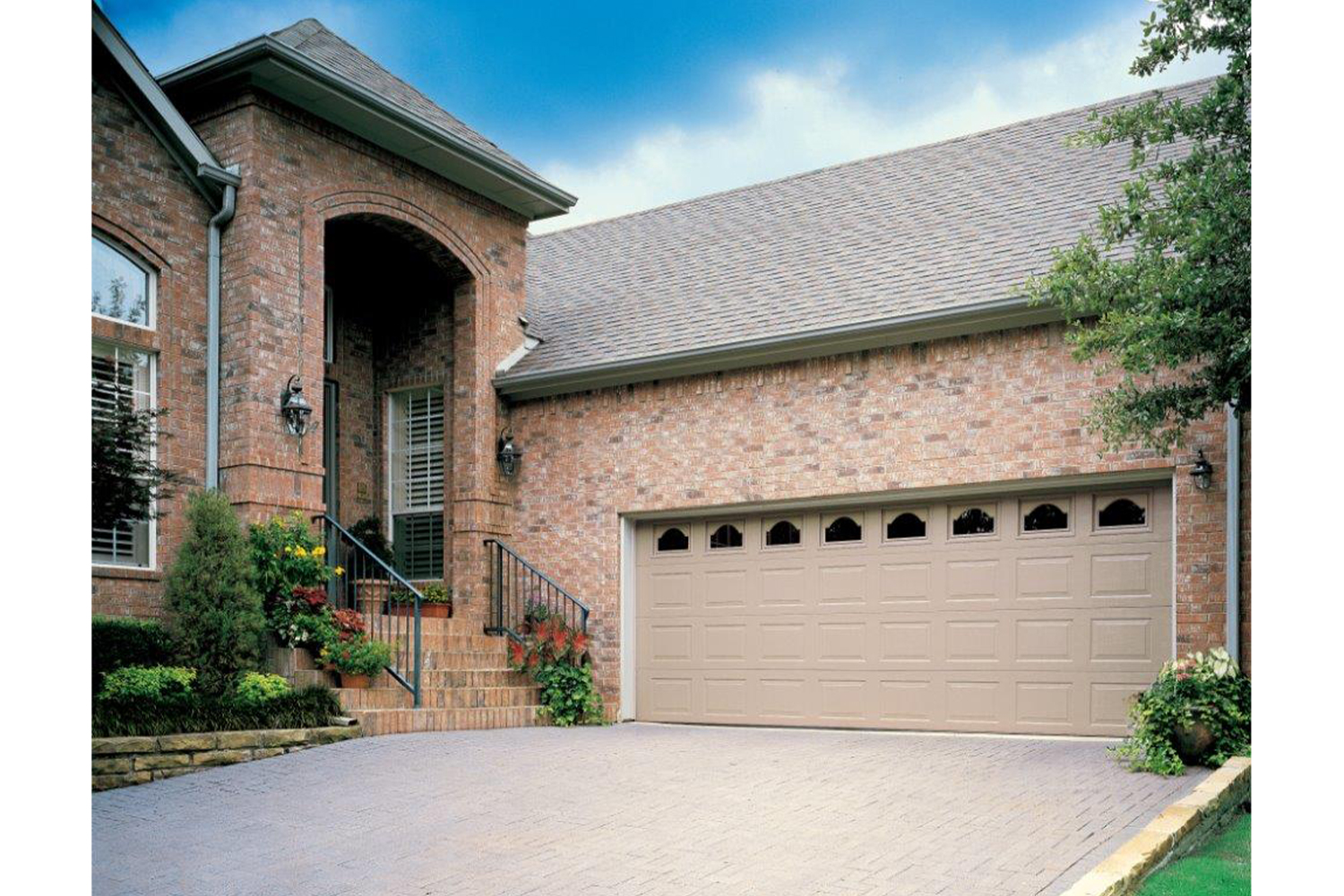Garage Door Materials: Choosing the Best Door(s) and Overhead Door Tech’s for Installation
December 5, 2023

Garage doors come in many assorted styles and materials to help best fit your lifestyle and preference. If you are struggling to decide on which garage door will best fit your needs, we have put together a guide on the types of materials and their pros and cons.
What is the Most Common Material for Garage Doors?
Traditional Steel is the most popular material choice for garage doors, but that does not mean it is the best for every home. Steel is flexible and low maintenance, when compared to some of the other materials available. Additionally, it is a low-cost option.
Another popular choice is aluminum. While traditional steel and aluminum share a lot of similar qualities, aluminum is lighter than steel, which makes these doors less durable and easier to dent.
Other Available Materials
Glass
A popular option for not only garage doors, but for interior garage doors as well, are glass garage doors!
The tempered glass is a form of safety glass that has a higher impact strength. Options like frosted or tinted glass help block people from seeing inside your garage door, but still allow plenty of natural light in.
While it does have a lower impact strength than metal or wood, tempered glass is safer than standard glass, meaning that when it shatters, the pieces are much smaller and less sharp, making it less likely to cause injury.
These doors are best for coastal regions or other warm locations.
Fiberglass
Fiberglass is a composite material, and it differs from tempered glass in its composition. Fiberglass is mostly used for entry doors and can provide elegance and curb appeal while still being functional.
These garage doors are low maintenance, corrosion and rust-resistant, do not contract or expand due to temperature and offer many design options. However, these doors can be susceptible to wind damage, can yellow underneath and must be replaced if damaged.
While they will not corrode or rust in the way steel might, fiberglass garage doors are more brittle and do not fare well in regions with harsh winds or severe rain.
Wood
Wood garage doors are for those who are looking for a beautiful and rustic appearance. These garage doors provide you with natural insulation and are easily customizable!
However, in wet climates, wood can rot and warp as well as expand and contract in certain temperatures, which causes the door to swell. Additionally, wood garage doors must be finished and maintained regularly.
This door is perfect for a homeowner that wants a genuine, classic, and authentic feel, but not for those who wish to have a low maintenance garage door.
While a wood garage door provides you with that rustic feel, if you live in an area prone to a lot of rain, other materials might be a better option.
Wood Composite
Wood composite doors are often referred to as faux wood garage doors. This material is a blend of plastic, wood fiber and a binding agent. A composite garage door is a mixture of materials that can simulate wood.
These garage doors are often less expensive, lighter and require much less maintenance than your traditional wood garage door. Additionally, the installation process is easier than real wood doors.
The wood composite garage door is much more durable than traditional wood doors. They are perfect for any climate because they are less susceptible to moisture from the sun, wind, or humidity.
Vinyl
Garage doors that are made of vinyl material are made of synthetic plastic that can be more rigid or flexible. Vinyl garage doors do not contain any wood like a composite door and are excellent noise reducers, highly resistant to damage and scratches, rust proof and will not rot or swell.
However, they do not insulate heat well during the cold months and can crack in frigid conditions. While these doors are low maintenance, they are difficult to repaint if you decide to make a change after a few years.
Choosing the Right Material
There are many options and customizations for whichever garage door material you decide on. However, it is important to consider the following when making your decision.
- Consider Your Environment: Northeast Wisconsin winters and summers can be brutal, and it is important to factor that in when choosing the material of your door.
- Set Your Budget: Everyone’s budget will be different, and it is important to decide on your price range early in your selection process. Wood doors tend to be the most expensive because they are not easy to make, however a composite or metal door can achieve the wood look with customization options.
- Decide on Insulation: Wood provides natural insulation, but with other materials, you may need to decide on foam padding or other forms of insulation to keep the heat and cold out.
- Think About Damages: If you live in a neighborhood with lots of children who play outside or have children yourself, you should consider the damage you might encounter and how you would be able to fix it.
- Imagine Your Design: Each material comes with its limitations and customization options. Have an idea in mind of the look and feel of your door to help find the best door to fit your needs and style.
- Evaluate Your Panels: In addition to your design, you will want to consider whether you would like a single panel or sectional garage door.
If you are unsure which garage door is best for you, contact our professional team here at Overhead Door Company of Green Bay! We will be able to help steer you in the direction of the best door based on questions about your day-to-day use.
